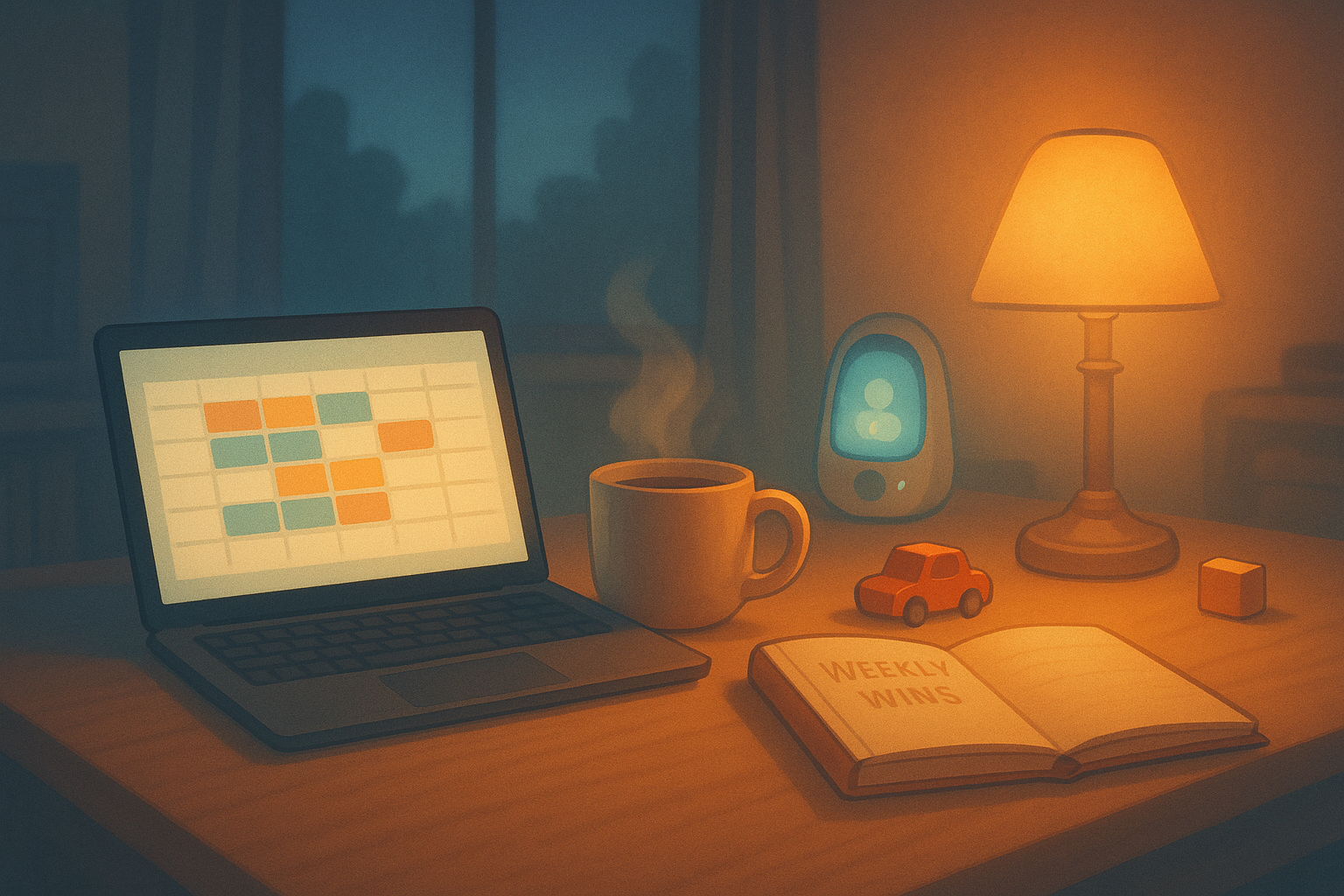At 6:00 a.m., I sat down at my desk to work on PartYay, hoping for a quiet morning of coding. At 6:20 a.m., my three‑year‑old woke up. “Blip,” I thought. The next day I set 5:30 a.m.; he was up at 5:50 a.m. Fine—5:00 a.m.; at 5:30 a.m. he yelled, “Daddy!” Eventually it settled: I’m up at 5:00 a.m., he’s up around 6:30 a.m., and I get about 90 minutes. Not hero hours. Just holding the intent and finding the window reality allows.
I’m a parent building on the margins—before work, after bedtime. What keeps me moving: I plan the week on purpose, forgive the daily chaos, and judge success by the small wins I log—not by perfect adherence.
That combo matters because it cuts guilt without letting me drift. A plan is a map; weekly wins are mile markers. Life with kids will blow up any minute‑by‑minute fantasy; measuring progress weekly keeps me accountable without pretending the week will be tidy.
The traps are familiar:
- Parents beat themselves up for missing the plan and imagine they’d crush it in a quieter universe.
- They ignore the rest of their lives and try to brute‑force through it.
- They compare their pace to people with totally different constraints and feel behind for no good reason.
Plan with intent, drop the guilt, count the wins.
Story two—because my son always wants two books. I was listening to The Knowledge Project with Harley Finkelstein about being intentional with a color‑coded calendar—as he puts it—roughly—“Show me your calendar and I’ll tell you who you are.” I spent thirty minutes mapping my evenings: blocks for ideation, chores, writing. Night one, five minutes into ideation, the nine‑month‑old woke. First reaction: frustration. Then the reframe: I’m doing this for them. I settled him, came back, and didn’t throw out the plan or myself—I just picked up where I could and logged what moved.
I log one small win each week
- I journal 5–10 minutes a day. I highlight what I touched—code, notes, even a tiny refactor—and at the end of the week I summarize the handful of things that moved.
- If a day goes sideways, the weekly view still shows momentum. That’s what I judge.
I time‑block my week, then forgive the day
- I plan my evenings and mornings in the calendar (colors optional). The blocks tell me what “now” is for.
- When a kid wakes mid‑block, I don’t scrap the week. I return and continue with the next step I wrote down. Plans guide me; they’re not contracts.
I treat my schedule as choices
- If it’s not scheduled, it’s a deliberate “not now,” not failure. That keeps me from feeling behind for things I intentionally parked.
- Family, sleep, and work have weight. The calendar reflects that on purpose.
I stop comparing my pace
- Other people have different constraints. I try not to benchmark my pace against theirs.
- Instead, I look at what I did with the time I had this week and count those wins.
